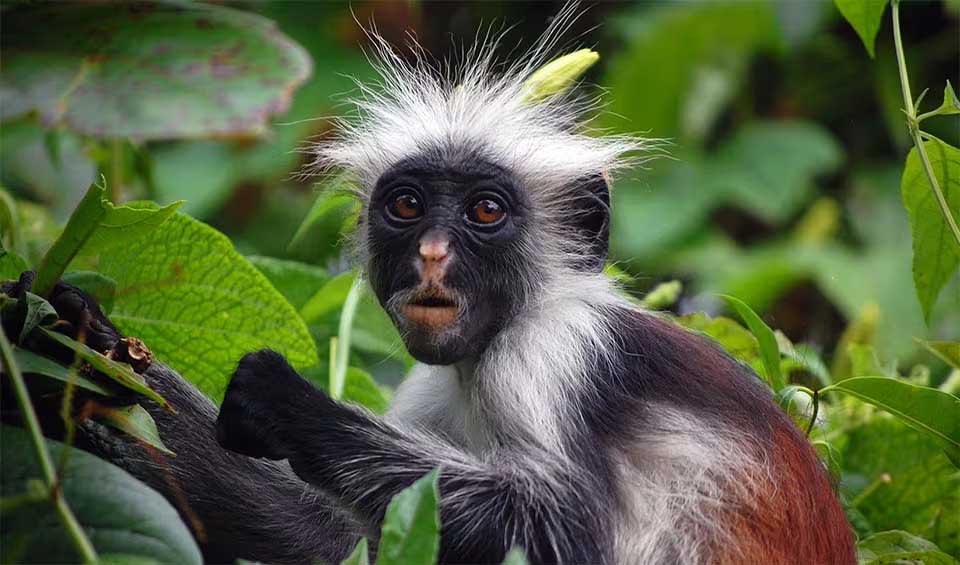A striking and rare species of primate found only on the Zanzibar archipelago off the coast of Tanzania, primarily on the island of Unguja. This species is one of the most endangered and distinctive colobus monkeys, with a population that hovers around just a few thousand individuals due to severe habitat loss and human interference.
Distinctive in appearance, the Zanzibar red colobus has a shaggy coat that ranges from dark red to black, accented with a black face and a crown of long white hair. Unlike many other monkey species, they have a stump for a thumb, an evolutionary trait that distinguishes them. Their long tails, which are often longer than their bodies, help them balance as they move through the trees, an adaptation to their mostly arboreal lifestyle.
These monkeys are highly adapted to a leaf-based diet, predominantly eating mature and young leaves, along with flowers, unripe fruits, and seeds. This diet is unusual for its high content of toxic substances from the plants they consume, substances which would be indigestible or harmful to most other animals. The Zanzibar red colobus has a complex stomach that ferments this tough, fibrous dietary intake, neutralizing toxins and breaking down difficult-to-digest plant matter, a clear adaptation to their specialized diet.
One of the more endearing aspects of the Zanzibar red colobus is its interaction with human visitors. They are among the few wild animals that exhibit little fear of humans, often approaching them closely, a trait that has made them a flagship species for tourism in Zanzibar. Their approachable nature, however, makes them vulnerable to human-related threats, including road accidents and conflicts with farmers, as these monkeys are known to venture into farmlands in search of food.
Distribution
 Tanzania
Tanzania Official estimate
Official estimate
Anything we've missed?
Help us improve this page by suggesting edits. Glory never dies!
Suggest an editGet to know me
Terrestrial / Aquatic
Altricial / Precocial
Polygamous / Monogamous
Dimorphic (size) / Monomorphic
Active: Diurnal / Nocturnal
Social behavior: Solitary / Pack / Troop
Diet: Carnivore / Folivore / Omnivore / Piscivorous / Insectivore
Migratory: Yes / No
Domesticated: Yes / No
Dangerous: Yes / No




